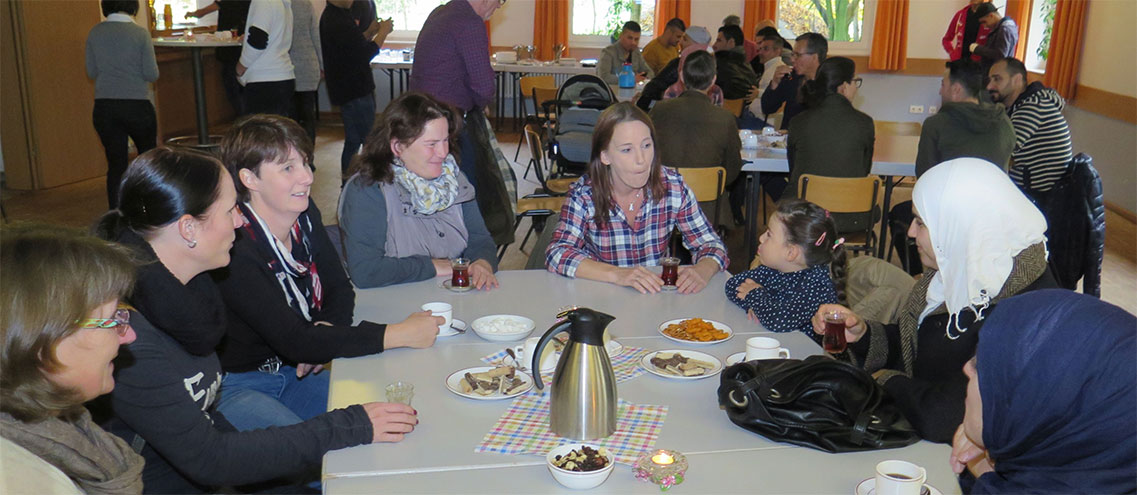
In addition to finding shelter, residence permit status and the essential items for everyday life, it is especially the personal contact that brings people here. Every hour of your time is valued and desired. Find out about the many opportunities for contributing your time, how to use your personal skills effectively and suggestions for getting in touch with fugitive fellow citizens of Schermbeck.





